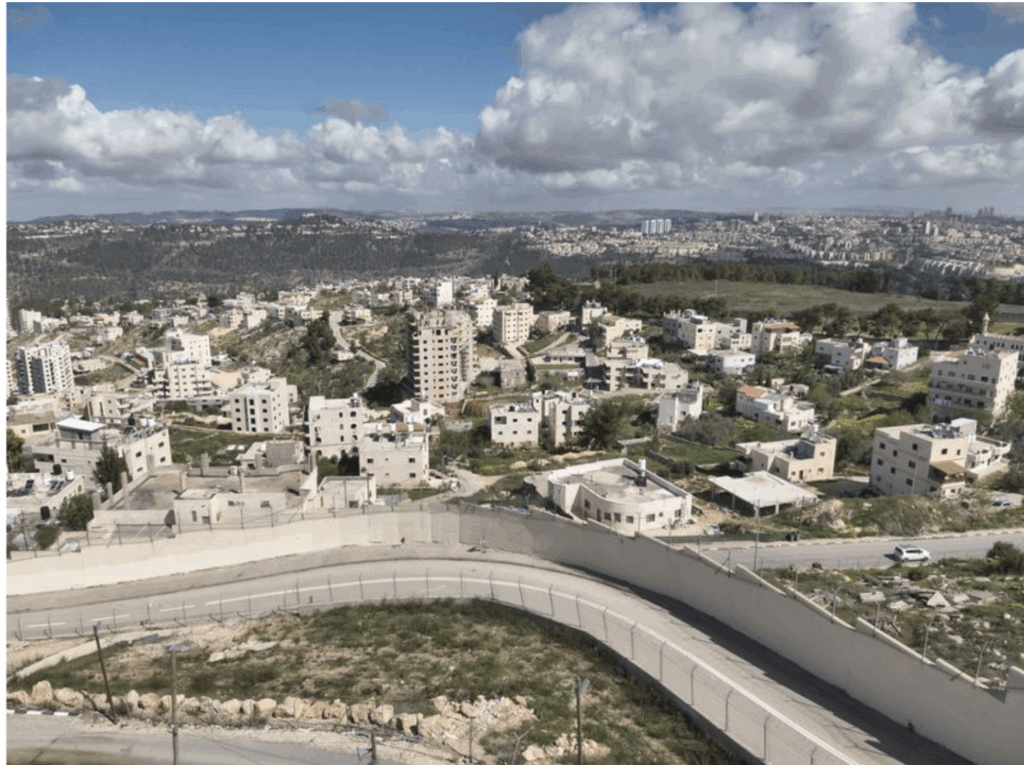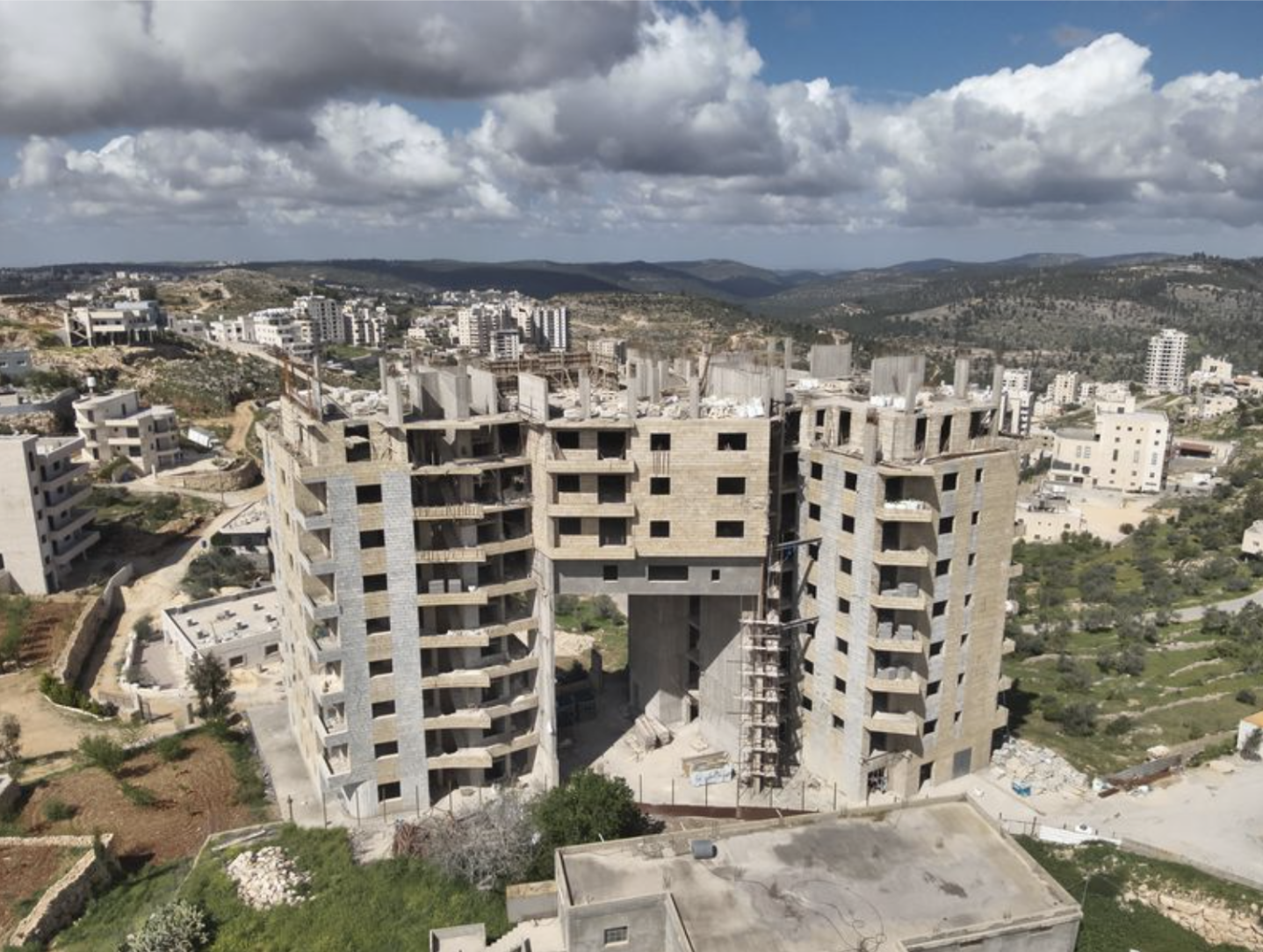This week, the Regavim Movement, in collaboration with the Gush Etzion Regional Council, petitioned the court for an injunction to halt construction of a multi-story building in the village of Walaja, south of Jerusalem, which is being erected without permits or authorization.
The massive project is on a site adjacent to the Jewish community of Har Gilo, near the security barrier in the northern Gush Etzion section of the Jerusalem Envelope. The development resembles the infamous Holyland Project in Jerusalem’s Malha neighborhood: Two 12-story towers, connected by an additional 4-story building, totaling 8,472 square meters.
The project is in its final stages of construction, with dozens of workers on site. Regavim is seeking a court order to prohibit the connection of the illegal building to infrastructure and utilities and to prevent occupancy. Regavim’s petition referenced a recent District Court injunction against the placement of “caravans” – temporary structures, placed on land within the municipal boundaries of Karmel in order to prevent encroachment and land theft by the surrounding Arab outposts. “It should be emphasized that the housing project in Walajah has been constructed on land not owned by the builders; it constitutes encroachment on Area C, an area under Israeli jurisdiction, a mere 100 meters from the security barrier and 200 meters from the homes of Har Gilo. Construction of this kind has no chance of receiving permits – even retroactively, which makes an interim restraining order all the more essential,” according to Regavim’s petition.
Regavim: “This massive illegal building eclipses even the infamous Holyland real estate scandal in Jerusalem’s Malha neighborhood. We call upon the court, which has previously ordered resolute and swift law enforcement against mobile homes situated on municipal land in the Jewish community of Karmel, to take decisive action to prevent this unauthorized expansion as well.”
The village of Walaja is located between Gush Etzion and the city of Jerusalem, with the village center situated in an area designated as Area B under the Oslo Accords, and includes extensive open areas intended for the village’s natural development. In practice, the Palestinian Authority is working to expand the village – but rather than doing so on the village’s allocated, legal territory, it has encouraged expansion specifically into Area C on land located at the southern tip of Jerusalem, on land under the jurisdiction of the Gush Etzion Regional Council, as well as areas under the Jerusalem Municipality’s jurisdiction.

Regavim’s repeated appeals to the relevant enforcement authorities yielded no response, forcing the land-use watchdog movement to petition the District Court: “The petitioner [Regavim] has repeatedly alerted the respondents [the enforcement bodies] regarding this illegal construction.
Regrettably, not only have they failed to take substantive enforcement action, but the construction and development have been allowed to proceed unhindered, creating significant security, safety, and strategic challenges.”
Yaron Rosenthal, Head of the Gush Etzion Regional Council: “The structure, located just 200 meters from Har Gilo and the security barrier, rises to a great height and poses a security threat to the surrounding region. We will not tolerate such rampant construction that endangers the safety of residents and all those traveling on our roads. I call on the authorities to act swiftly against the structure – and the hundreds of additional illegal structures spilling over from the boundaries of Walaja into the open areas of Gush Etzion.”
Roi Drucker, Fegavim’s Regional Coordinator for Judea and Samaria: “This enormous and outrageous structure is yet another part of the Palestinian Authority’s coordinated strategy to establish territorial footholds in and around Jerusalem and to undermine the sovereignty of the State of Israel in its own capital city. The authorities’ inaction in the face of this unrestrained Arab takeover constitutes criminal neglect that requires immediate correction. We hope the court will issue an order to prevent occupancy as an initial measure—consistent with its prompt response in the case of the mobile homes in Karmel —and ultimately order the demolition of this structure and accountability for those responsible. Only through such steps can we reverse this trend and safeguard Israel’s public land resources from ongoing depletion and expropriation.”





